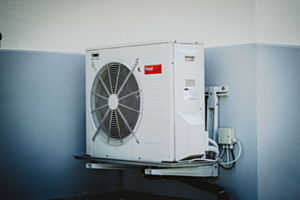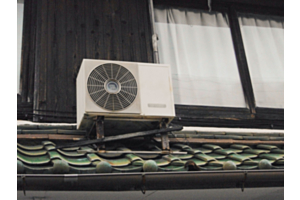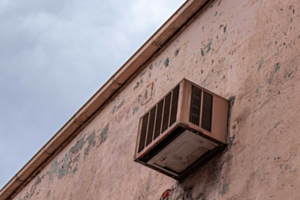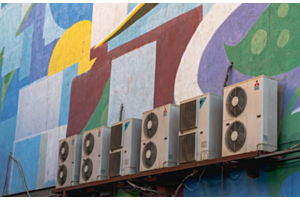How Much Condensation Does a Mini Split Produce?

You’re about to retire your air conditioner since it’s old and its energy efficiency could be a lot better. You were thinking of upgrading to a ductless mini split system, but you’re wondering if a mini split will cause an accumulation of condensation as well. If so, how much?
Mini splits will produce condensation and thus require a drain pipe installed with the indoor air-handling unit. The drain pipe should be routed to a plumbing pipe so the water can seamlessly exit.
The drain pipe is integral to a mini split, as an included gravity flow inlet sends condensate water to the nearest outlet.
When a mini split technician comes to your house to install the components, they’ll make a hole for both the drain pipe and the refrigerant line. This will mean drilling holes into your home’s interior walls, but the indoor air-handling unit hides the holes so they’re never noticeable.
One of the biggest benefits of ductless mini splits is that they can both heat or cool. Which of these two settings is the likeliest to produce condensation?
That would be cooling, of course. Air conditioners naturally produce condensation as they run. What’s happening is that the evaporator coils absorb moisture and heat as your AC runs. The coils also make this warm air cooler, and condensation is a byproduct of that. The reverse can also happen on your outdoor unit.
A ductless mini split system utilizes evaporator coils as well, so condensation can develop in much the same way.
When using your mini split for heating, you’re unlikely to see any condensation on the indoor unit.
What about the outdoor compressor, which is another part of your mini split system? This component does produce condensation, although not at the same rate as the indoor air-handling units.
Another difference is that the compressor is outside in your backyard. The condensation here quickly evaporates due to the sunlight. You don’t have to worry about it pooling up and creating puddles on your lawn.
An air-handling unit is inside, so even a few drops of moisture can ruin your walls, your floors, your furniture, and any other indoor décor that you’d prefer to keep dry.
Of course, if you notice that the compressor is leaking more than a little bit of condensation, you should pay attention to that. It could be water seeping but, more than likely, it’s a refrigerant leak, this would not apply to the unit if it was in heating mode.
Since refrigerant leaks can reduce the efficiency of your mini split system, you'll want to call a mini split technician out to your home sooner than later. They can diagnose where the leak is coming from and get your mini split as good as new!






